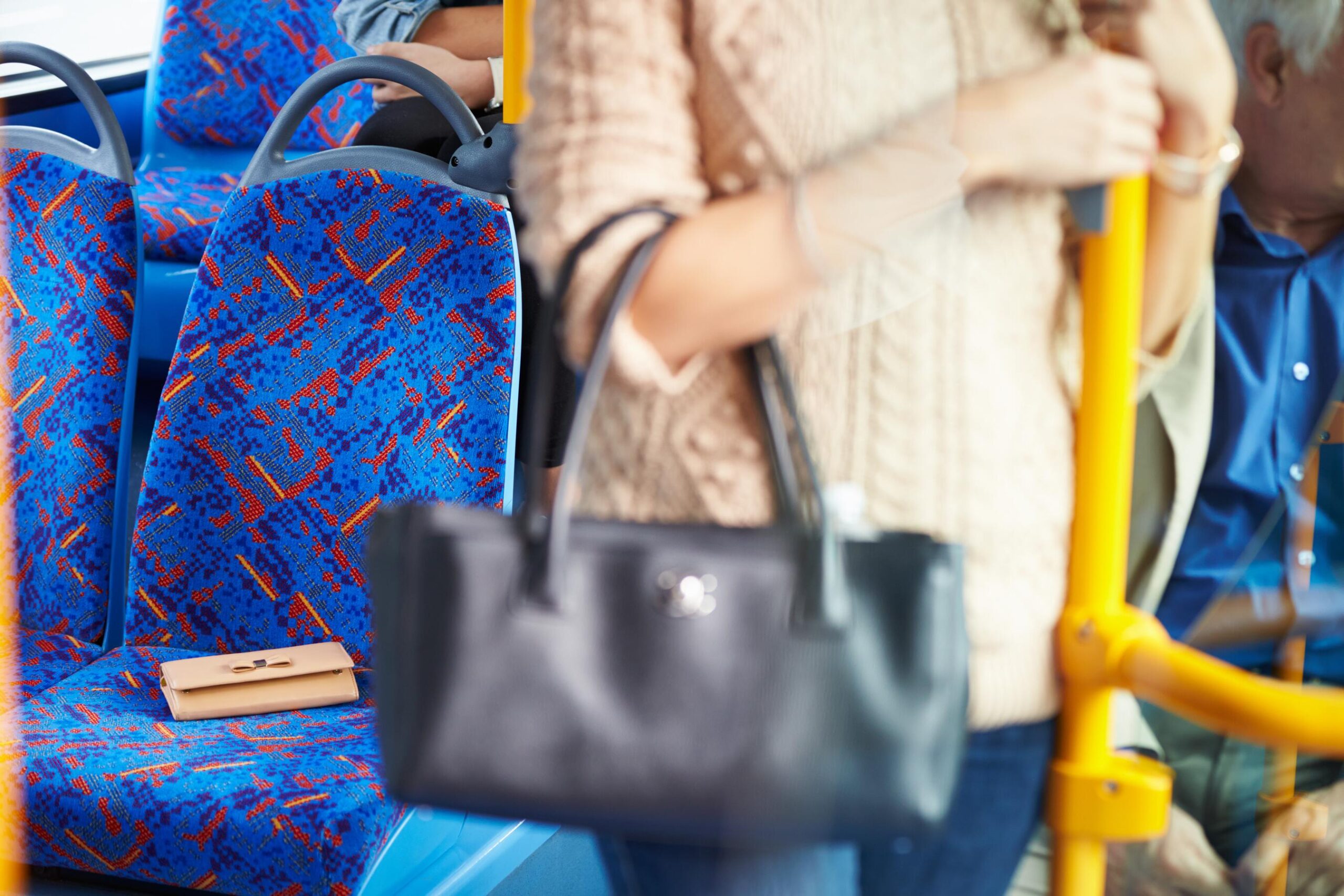Here's everything I learned from losing my wallet abroad and what to do if it happens to you.
The first time I lost my wallet abroad, I was relatively unfazed. I was driving the ring road around Iceland with friends and left my wallet under the bunk in a hostel. By the time I realized it was gone, we were 200 miles away and not turning around. I paid the hostel to ship my wallet back to America and mooched off my pals for the remainder of the trip, blithely Venmo-ing them for food, gas, and lodging along the way.
“I definitely won’t let this happen again,” I told them each time I pressed “transfer” on Venmo. But happen it did, just two months later.
That December I booked my first solo trip. I was 25 and eager to prove that I could travel on my own. I had heard of so many other women who had formative experiences with solo travel. I chose London; a city familiar to me, and set a date for a 10-day trip near Christmas. The flight over was one most travelers only dream of: the plane was empty, with only a few dozen passengers spread across a giant 747. I had a row to myself, and spread out gratuitously. When we approached London, I watched the Thames River come into view, the lights from the Christmas fair in Hyde Park blinking like fireworks on the skyline.
Recommended Fodor’s Video
When the plane landed, I hastily grabbed my things and booked it through passport control, baggage, and customs. It wasn’t until I was standing in line for tube tickets that I discovered something was missing: my wallet.
Sitting on the cement floor of the tube station, I tore apart my luggage and had the sinking realization that I must’ve left my wallet in the seatback pocket while I was dreamily staring out at the London skyline. I went running down the tunnel back towards security, but—as expected—no one would let me back into the terminal. Instead, I was pointed to a courtesy phone where I could contact the airline. By the time I got the right person on the phone, the plane had already been taken off the tarmac for the night.
Generally prone to anxiety and thrown by the apathy of the airline employees, I slumped down next to the courtesy phone and let out long, heavy sobs. I didn’t have a credit card or a single dollar that could get me out of the airport and was quite certain I’d be spending the night there. Fortunately, a customer service employee noticed me crying and attempted to help. Through big, gasping cries I managed to convey that I lost my wallet, was effectively penniless, and a long way from home. In one of the kindest gestures anyone has ever done for me, he went to the ATM, withdrew £60 of his own money, and gave it to me to get me to the city.
I had fortunately paid for my bunk in a 16-person hostel dorm in advance, so once I was in the city and checked into my dorm, I spent most of the night calling up credit card companies and canceling my cards. While they were all very helpful, none could issue me a card in sooner than five business days. Over the course of just a week I spent more than 10 hours on the phone with credit card companies and the airline, to little resolution. Thankfully, a kind friend eventually wired me money to get me through those first few days, but the anxiety of walking through the city and sleeping in a crowded dorm with £400 pounds cash (and no backup plan) left me sleepless and on edge.
Sure, I managed to have some fun. Lots of museums in London are free, and I enjoyed taking long walks through London’s many neighborhoods in lieu of taking the tube. About a week into the trip, my re-issued credit cards started rolling in, which helped me breathe a bit easier. But the experience of losing my wallet left me with this unshakeable vulnerability that colored my whole trip. It was the first time I felt really alone in a big world, and I was angry at myself for not being smarter.
While it wasn’t the banner solo trip I had expected, one good thing came out of it. On my last day, I went to the airport to repay the kind man who loaned me money that first night. He greeted me like a friend.
“That was the kindest thing a stranger has ever done for me,” I told him.
“I’m happy I could help,” he said. “But next time, maybe invest in a money belt.”
I’m still not sold on the money belt, but I’ve (thankfully) learned from my experience. Here are some tips to avoid my fate.
Consider an AirTag
Fortunately, technology has come a long way since I lost my wallet in London. I now permanently keep an Apple AirTag in the coin purse of my wallet. In the event that your items do disappear, an AirTag can help you direct folks to the right location and give you a better idea of whether your items are lost versus stolen.
Take Pictures of All Your Cards
It was an ordeal to verify my identity to credit card companies when I had limited internet access and didn’t know my credit card numbers, driver’s license number, expiration dates, or security codes. Having this information in your phone (or the cloud) can save a lot of time and frustration. Make sure to take photos of your credit cards before you travel. Even better, have a backup credit card that you store outside your wallet in case you lose your wallet or are robbed.
Have a Friend or Family Member You Can Count On for a Wire Transfer
Turns out that even in the days of Venmo, it’s much harder to wire money to yourself than it is for someone else to wire it to you. Have someone you trust on standby just in case you need a wire transfer. For everyone’s security, it’s always a good idea to verify each other’s identity before any money changes hand. Some people have a password or code they use, but it works just as well to ask a question only they would know the answer to.
Don’t Forget About Contactless Payments
These days, many modern cities are fully equipped to take contactless payments from Apple Pay, Google Pay, Paypal, and more. It’s worthwhile to set this up before you leave and make sure your contactless account is connected directly to a bank or Paypal. If you lose your physical cards, you can pay with contactless even if you need to cancel your credit cards.
Call You Credit Card Companies but Hold Off on Cancelling Cards Immediately
It’s important to call your bank and credit card companies immediately to avoid any liability for fraudulent purchases. But if you think there’s a chance you can recover your cards, ask for a hold instead of a cancellation. Depending on where you are in the world, it can take up to a week for your credit card company to get a new card to you.
Opting for a hold allows you to keep that credit line open to make online purchases (like accommodations or a plane ticket home) or contactless payments. Many credit card companies can also extend a cash advance or book accommodations and travel on your behalf, regardless of whether you choose a hold or cancellation.



